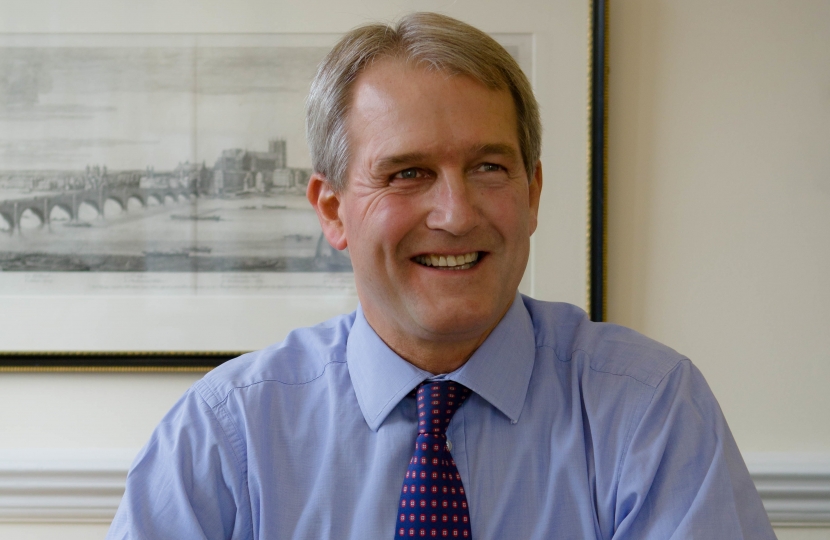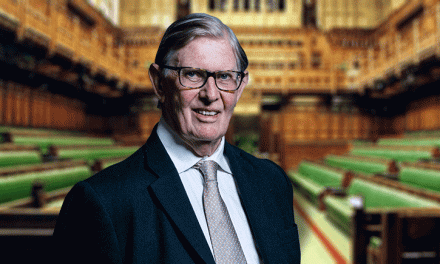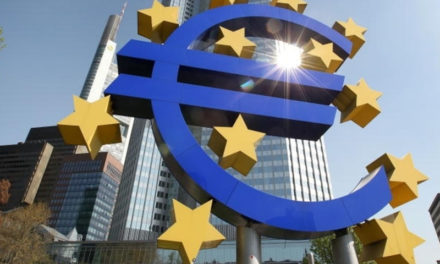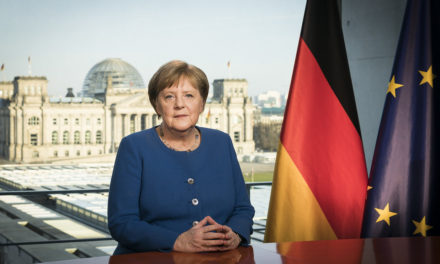For many years, the political narrative in this country conformed to James Carville’s famous maxim. The central issue was “the economy, stupid.” The focus of the debate was how to create wealth, how to tax it, and how best to spend the revenue.
But the questions now dominating politics confirm that the political tectonic plates – which have been straining uneasily against each other – have finally produced an earthquake, with 73 MPs having changed affiliation since 2017.
This realignment is as welcome as it is overdue, for the true political divide now rests on a fundamental question: Who should govern the United Kingdom? Should it be elected UK politicians whose authority derives from the people’s votes, or unelected technocrats with authority bestowed by a supranational body?
This is the central point upon which one must reflect in determining a position on the UK’s membership of the EU. After all, it is no secret that full political union is the EU’s goal. The Commission’s new President, Ursula von der Leyen, famously said that “my aim is the United States of Europe.” Her predecessor Jean-Claude Juncker envisioned a future in which “we will not exist as single nations.” Guy Verhofstadt gave a chilling yet bizarre rant about a “European Empire” at the Liberal Democrat conference.
Few Parliamentary Remainers in this country make their case so explicitly. Even Lib Dems, now advocating the revocation of Article 50, dress their arguments as seeking to avoid some kind of disorderly exit rather than making a positive case for membership of the eventual European state.
The latest creed, that there is “no mandate” for a so-called “no-deal” Brexit, simply does not stand up to the repeatedly and democratically expressed wishes of the electorate.
In 2015, the Conservatives promised that, if elected, we would hold a decisive in/out referendum on the UK’s EU membership. The Party was returned to Government with more votes and MPs. The EU Referendum Act was passed by a ratio of six to one in the Commons. A certain Philip Hammond gave the Government’s “absolute commitment to allow the British people to have the final say.” In 2016, 17.4 million did, and voted to leave the EU.
In 2017, the Conservatives stood on a Manifesto pledging that “we will no longer be members of the single market or customs union.” On page 36, it said: “no deal is better than a bad deal”. The Conservatives won more votes than any party for 25 years.
The Withdrawal Agreement was thrice emphatically rejected by Parliament. In the European Parliament elections this year, only the Conservative Party advocated the Withdrawal Agreement and recorded our worst ever result in a national election, winning under 9 per cent of the vote. The newly-formed Brexit Party topped the polls on an explicitly “no deal” platform, winning in Wales and every English region outside London.
Boris Johnson won the Conservative leadership election with over two thirds of the vote with his unequivocal message that the current Withdrawal Agreement is “dead” and that the UK would leave the EU by 31st October “come what may”.
In reality, “avoiding no deal” is, in practice, the same as stopping Brexit. Remainers in Parliament seek a situation where the EU alone may choose the time of our departure. We should not be able to leave the EU without its express permission. The UK’s destiny should not, ultimately, rest with its people, but with the appointees of a foreign power.
The principle upon which I and other Conservatives stand is that the UK should govern itself. We should elect Members of the House of Commons to make and scrutinise laws, with simple, robust means of getting rid of them if they are not to our liking. The referendum was the clearest expression of the idea – held since at least the Glorious Revolution – that sovereignty rests with the people in an ultimate sense.
The Crown-in-Parliament is the supreme authority in the land. The Bill of Rights 1689 established as much when it placed constitutional requirements on the Crown to seek the consent of the people through Parliament and made “the pretended power of suspending the laws and dispensing with laws by regal authority without consent of Parliament” and “levying taxes without grant of Parliament” illegal. But in so doing, it follows that there must be a source of Parliament’s sovereignty, and that source is the consent of the governed. That consent is absolutely paramount if the principle that our destiny rests inalienably in our own hands is to be satisfied.
That is the principle on which 17.4 million people voted to leave the EU. That is the principle which the current Parliament – of which some 480 or so MPs backed Remain – has so abjectly failed to understand, let alone implement. Their misguided appeals to Burkean philosophy or their pedantic mantra that the referendum was “advisory” have shown them to be unfit for purpose. MPs voted, deliberately, voluntarily and by six to one, to give the final say to the people. The decision must be honoured. To do otherwise would reveal our democracy to be a sham.
It is on that basis that we have and will oppose the idea of taking “no deal” off the table. We continue to seek a zero-tariff, zero-quota Free Trade Agreement with the EU in the best interests of both sides. If the FTA is rejected, the 31st October deadline must still be met for the sake of our democratic institutions’ survival. There is nothing to fear from leaving without a Withdrawal Agreement and much to gain by being able to pursue independent policies designed for our own priorities.
With the “Remain Alliance” increasingly coalescing, the Leave vote – the vote which believes that the destiny of the United Kingdom should rest with the United Kingdom – must be equally united to ensure that we leave on the 31st October. The challenges over the next few weeks may not be easy. But the prize on offer is glittering: we shall have restored the self-government of the United Kingdom.




